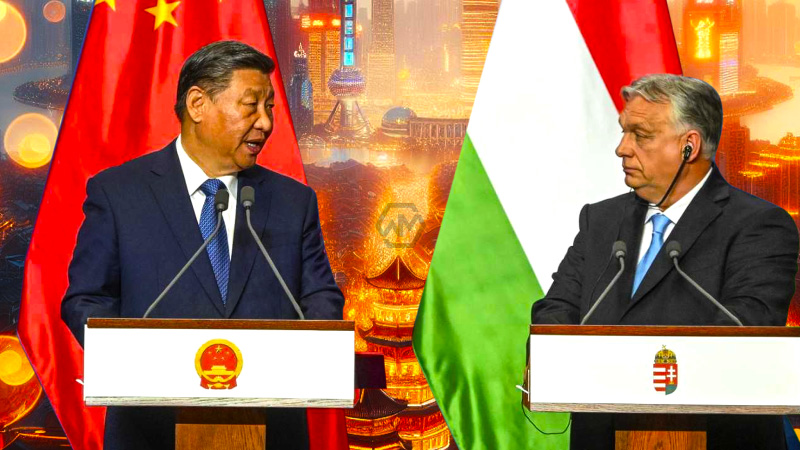- Most EU nations put forth attempts to “de-risk” their economies from saw dangers presented by China.
- Hungary has headed down the other path.
- Seeking significant Chinese interests in the conviction that the world’s second-biggest economy is fundamental for Europe’s future.
At the point when Chinese President Xi Jinping visited Hungary last week, he showed up at one of a handful of the spots in the European Association where his nation is viewed as a key partner as opposed to an opponent. When he left on Friday, he’d got bargains that gave ripe ground to China’s arrangements of monetary extension in Europe.
After meeting with patriot State head Viktor Orbán on Thursday, the pioneers tended to a little gathering of select media in Hungary’s capital, Budapest, reporting the development of an “all-climate organization” that would introduce another period of financial collaboration.
Hungary and Serbia Visit of Xi
While Xi and Orbán didn’t disclose substantial arrangements following their gathering, Unfamiliar Priest Péter Szijjártó later said in a video that an arrangement had been arrived at on a joint Hungarian-Chinese railroad sidestep around Budapest, as well as a fast train connection between the capital and its worldwide air terminal.
The two nations likewise consented to grow their collaboration to the “entire range” of the atomic business, Orbán said, and bargains were arrived at on China assisting Hungary with working out its organization of electric vehicle charging stations and the development of an oil pipeline among Hungary and Serbia.
Zsuzsanna Vegh, a program colleague at the German Marshall Asset and visiting individual at the European Committee on Unfamiliar Relations, said those arrangements were “an unmistakable sign that China considers Hungary to be a key and solid partner” in the EU as it looks to switch Europe’s hardening de-gambling with strategy.
Chasing after a comparative procedure is Serbia, Hungary’s neighbor toward the south, which has likewise given wide open doors to Chinese organizations to take advantage of its regular assets and complete enormous framework projects.
Like Orbán, Serbian President Aleksandar Vučić has constructed a dictatorial administration that shuns the pluralism esteemed in additional conventional Western majority rules systems — making the two nations appealing to China as misty direct arrangements help wipe out formality.



